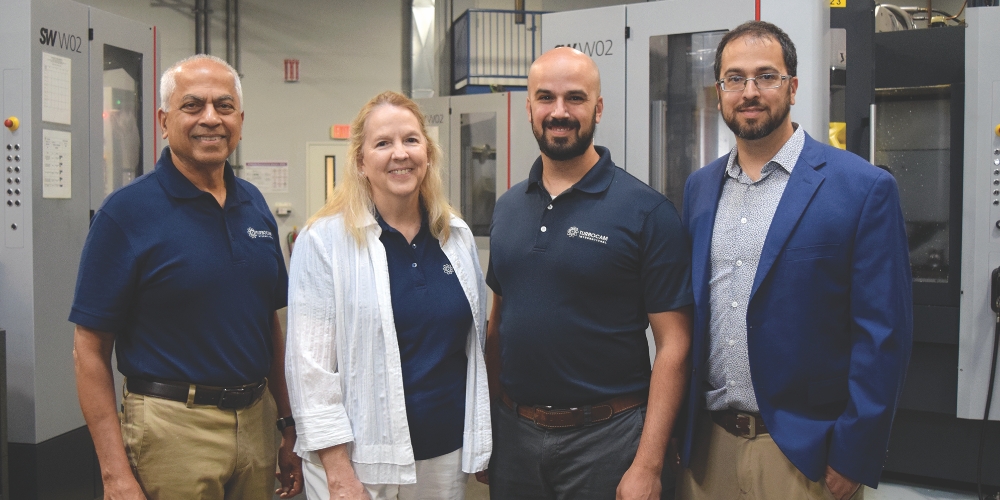
Family businesses are often seen as the heart of the economy, combining tradition, trust, and legacy. But behind the scenes, many of these businesses face unique challenges that can feel isolating and overwhelming.
Common Struggles
It’s no secret that running a business is never easy, but when family is involved, it can be more complex including:
- Blurred Boundaries: It’s hard to leave work at the office when your coworkers are also at the dinner table, or at family gatherings. Many families report difficulty separating business issues from personal relationships.
- Succession Planning: One of the hardest conversations is about the future: who takes over, when, and how. Emotions, legacy, and expectations often clash during these transitions.
- Communication: While family members may know each other well personally, that doesn’t always translate to clear and healthy workplace communication or when it comes to company direction and decision making.
- Resistance to Change: Family businesses often have strong traditions, which can lead to resistance when it’s time to innovate or shift strategy.
- Uneven Workloads: Sometimes roles aren’t clearly defined, leading to some family members carrying more weight than others without a formal structure for resolving it.
These challenges, shared across industries and generations, can leave family members feeling alone and stuck. But when a group of these businesses owners and stakeholders gather, they discover something powerful: they aren’t alone.
Annually, the CEO and Family Enterprise Center at the University of NH brings together a group of family-run companies to share the common issues they have and brainstorm topics and presentations to help inform and advise them.
What began as a discussion around frustration quickly turned into a session of validation, learning, and connection. As one participant put it, “Hearing someone else say the exact thing I’ve been struggling with for years made me feel seen. And it gave me hope.”
The businesses began exchanging tools and strategies. Some shared how they’d created family charters to keep boundaries healthy. Others discussed the importance of bringing in outside advisors to mediate succession plans or help with strategic planning.
Many also shared how simply opening space for regular family meetings, with a focus on listening, made a difference. What became clear was that transparency, structure, and empathy were key ingredients to success.
This led the center to develop programs on Legacy and Identity, Mitigating Risks Around Shareholder Agreements, and How to Work with Those Outside the Business Yet In the Family.
Prepare for the End
An important program held last year focused on a topic that faces every family business: All business leaders will exit their business; one way or another.
The presentation started with a slide that asked, What Percentage of Family Business Owners will Exit their Business? The audience offered a variety of answers based on data points about how many family businesses will transition to the second generation, and then the third, and so on. But one member finally raised his hand and somberly gave the correct answer—“100% of us. We will all be exiting.”
This got the room’s attention. Yes, we will all exit at some point. The rub comes in what will we do to prepare for it. A family business that doesn’t plan will bring suffering to the family and to the business. It’s not just about the family. It’s about the other 48 or 480 people who work there.
The presenter shared other sobering facts. Not only do 10% of family business owners expect to never exit their business at all (guess they missed the quiz) but 66% don’t even know their exit options.
There are many ways to carry on the business, and it doesn’t always mean passing it to the next generation who learned at their granddad’s knee. Working with the next generation well before a decision is even faced is a best practice that equips the next group of leaders while taking care of any family issues and expectations. There are as many ways to structure a deal that’s fair and based in reality as there are types of businesses. Each deal is unique. Each succession plan is unique.
The Bright Side
What makes family businesses special?
- Trust and Loyalty: There’s a deep-rooted trust among family members that can’t be easily replicated in corporate settings. Employees feel this strongly too.
- Long-Term Thinking: Family-run businesses often think in terms of generations, not quarters. This creates stability and a commitment to quality and community.
- Shared Values: Many family businesses have a strong sense of purpose—whether it’s serving the local community or honoring a legacy.
- Flexibility and Passion: Family members are often willing to go the extra mile, stepping into new roles or staying up late, not just for the business, but for each other.
In the end, it isn’t just about solving problems. It’s about recognizing that family businesses aren’t meant to go it alone. When they come together, they don’t just survive, they thrive. The family and the business can indeed survive each other. n
Michelline Dufort is director of the CEO and Family Enterprise Center, part of the Peter T. College of Business and Economics at the University of NH. For more information, visit paulcollege.unh.edu/ceo-family-enterprise-center.












_Alex-and-Jason-in-front-of-map-sm.jpg)





